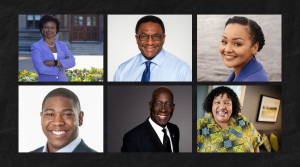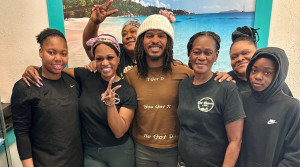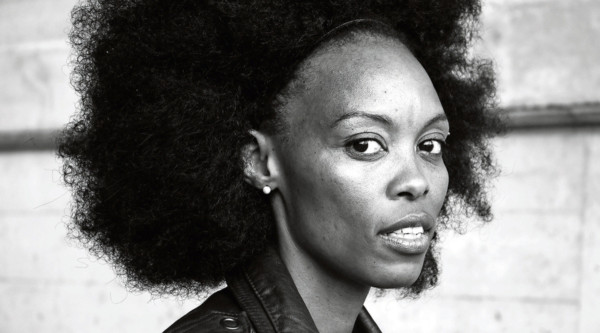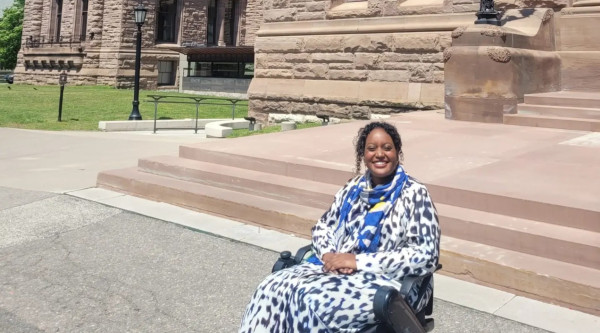Israel responded by imposing “a total siege on Gaza”, launching airstrikes and conducting a military ground offensive to destroy Hamas — which it claims has genocidal intent — and free the hostages.
Since Oct. 7, over 33,000 Palestinians have been killed, more than 75,000 injured, and most of the enclave's population of 2.3 million has been displaced, according to Gaza’s Health Ministry. The World Health Organization (WHO) says at least 25 have died due to complications linked to malnutrition, and the United Nations (UN) estimates that famine will take hold in various places in Gaza by May.
The humanitarian situation in Gaza is dire and people around the world have been voicing their outrage since the war started but criticism of Israel’s military campaign reached new levels when seven World Central Kitchen workers, including a Canadian-American dual citizen, were killed on April 1. Their convoy of aid trucks was hit by airstrikes. The attack raised the tenor of international condemnation and raised questions about the consequences Israel could face for how it’s waged its military campaign.
{https://twitter.com/trtworld/status/1776347829771849747}
On Friday, the UN Human Rights Council adopted a resolution condemning the alleged “use of starvation of civilians as a method of warfare in Gaza” and called for an arms embargo on Israel. The UN’s Special Rapporteur on the human rights situation in the Palestinian territory presented a report which states that “there are reasonable grounds to believe that the threshold indicating the commission of the crime of genocide against Palestinians as a group in Gaza has been met.”
It was the first time the UN’s top rights body took a position on the war. This follows a recent UN Security Council vote that passed demanding an immediate ceasefire in Gaza (at least until the end of Ramadan) and the release of the remaining hostages.
{https://www.youtube.com/watch?v=1Uz24rQnxeo}
But it was South Africa bringing a case accusing Israel of committing genocide in its war against Hamas before the world’s top court, the International Court of Justice (ICJ), in January which really galvanized the international push to support Palestinians in Gaza. South Africa intervened because it said Israel was violating international humanitarian laws and human rights, abusing power, and committing war crimes. Prakash Diar noted that the ICJ application marked a significant “escalation in political opposition” to Israel.
Diar is an award-winning human rights lawyer born and raised in apartheid-era South Africa. He actively challenged the systemic discrimination within the country’s legal framework and faced threats and detention without charge. He relocated to Canada in 1989. Diar expressed pride in South Africa’s attempt “to end the carnage in Gaza,” drawing parallels between the current geopolitical situation and the nation’s historic fight for freedom. Diar specifically cited the 1960 Sharpeville protests, where police gunfire against anti-apartheid demonstrators resulted in 69 deaths and numerous injuries.
“That was significant because the world was outraged at the actions of the white South Africans and slowly the isolation of South Africa started. They got kicked out of the Commonwealth, boycotts intensified over the next couple of decades, and all that really helped bring the apartheid government to its knees and come to the negotiating table.”
Apartheid in South Africa officially ended in 1994 with the adoption of a new constitution. Diar noted that the journey to freedom was a “process,” accelerated after the violence in Sharpeville.
“[Similarly], the world's consciousness is growing regarding the Palestinian issue and I'm hoping that this momentum will help towards a long-term peaceful resolution that Palestinians and Israelis can live together in peace and security,” he explained.
El Jones commended South Africa for being “the moral leaders in this issue” by bringing its case to the ICJ. Jones wasn’t surprised to see South Africa stand up for Palestinians given the tradition of Black-Palestinian solidarity. Jones is a poet, journalist, professor and activist living in Halifax, Nova Scotia. Her work focuses on anti-racism and decolonization.
“It is historically significant for us to see an African nation stepping up because it's Western nations that are often framing themselves as the upholder of human rights, democracy and freedom,” Jones said.
She called South Africa’s action “powerful” because it disrupts the notion of “the white saviour” and that Black people don’t have agency or the ability to be “equal actors in the world stage.”
A final decision from the ICJ is likely years away but last week the ICJ set the deadline for South Africa and Israel to file their Memorial and Counter-Memorial, respectively. The court already found South Africa’s claims of genocide “plausible” and issued six of the requested provisional measures. Those measures include ordering Israel to “prevent and punish the direct and public incitement to genocide” and “to take all measures to prevent genocidal acts” and reporting back to the ICJ.
Diar asserts that Palestinians have “history, the law and the morality on their side.”
A Test of International Law
Despite the praise, Jones and other critics have questioned the effectiveness of the international community’s justice apparatus. For example, UN Security Council resolutions are legally binding and apply to all member states, however, the UN doesn’t have a military or any actionable way to enforce its decisions. Jones argues that the international legal system disproportionately punishes African and racialized people “because these structures have settler-colonial relations” and she’s skeptical Israel will face consequences.
There could also be consequences for Israel’s allies, like Canada, depending on how the international governing bodies rule. While UN and ICJ officials monitor the situation in Gaza, trying to ensure that Israel takes “all measures to prevent genocidal acts” the actions of other countries are also under the microscope.
According to the UN’s humanitarian laws, states must refrain from transferring weapons or parts for weapons if it’s expected that they could be used to violate international law. States that violate this law could be judged to be complicit in genocide and dealt with accordingly.
{https://twitter.com/leninology/status/1775874793767591975}
Lawsuits have been filed against states who made weapons shipments to Israel, particularly since January, including Canada (and Foreign Affairs Minister Melanie Joly), the U.S., the U.K. and Denmark.
Despite U.S. President Joe Biden’s condemnation of Israel for the way it’s waging its war, particularly in the wake of the attack on the World Central Kitchen workers, his administration approved a major weapons sale to Israel worth over $18b. According to CNN reporting, it’s the largest foreign military sale to Israel since the start of the war and includes F-15 fighter jets.
{https://www.youtube.com/watch?v=JmY2qztjDAk}
In addition to the potential legal ramifications, both Jones and Diar say Western countries like Canada and the U.S. are at risk of being seen as hypocritical and undermining their reputations and credibility on the world stage for their approach to the Israel-Hamas war.
“You can't say on the one hand, we’re in favor of human rights and international humanitarian law and the rule of law in certain cases but not in others. Where in this particular case, it is one of the strongest cases presented on genocide,” Diar said.
“This kind of hypocrisy is very apparent to people in the Global South. People are saying ‘these Western nations are being exposed as hypocrites all around the world so don't come and lecture us about human rights,’” Jones said.
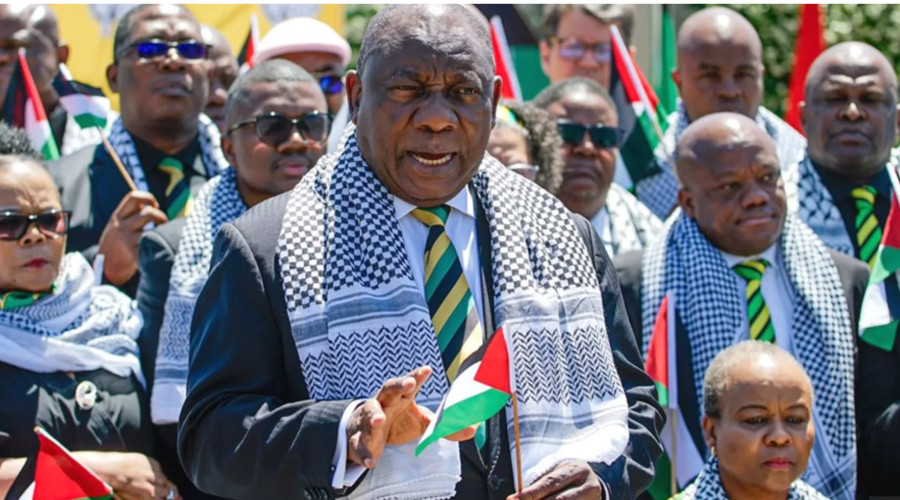
 By
By 


